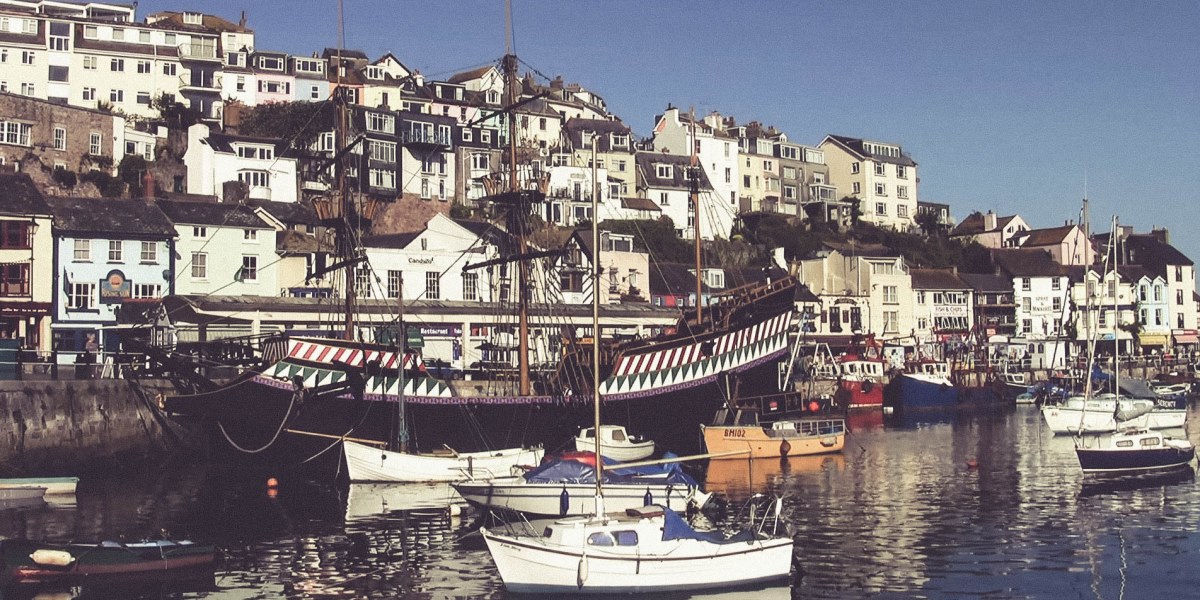The stories we tell ourselves set the standards we live by. The love stories from the title, which are three, are to come. But first, a joust.
An architect, a cook, and a writer walk up to a British immigration officer. This is literally what happened when our father, my brother, and I entered the United Kingdom this summer.
“It’s like a joke,” comments my brother. And we approach, holding our documents and our immigration cards in hand.
The officer skims our papers with an eyebrow raised. He huffs. “You’re an architect?” he questions my father.
Yes.
“What kind of buildings do you design?”
Galleries, schools, police stations.
The officer nods, turns to my brother. He huffs again. “You’re a cook?”
Mhm.
“What kind of food do you make?”
Cebollas encurtidas, he says, in dialect.
“Huh,” goes the officer, then turns to me. I smile.
After a while the four of us are cracking jokes and commenting on British cuisine, English philosophy, and architecture. The officer’s coworker, a commanding fellow, drops in to whip us a witticism here and there, but right before things get too casual, this newcomer makes sure our man on duty asks us the most important questions.
“What is the reason for your visit?”
It’s our grandmother’s 80th, state the brothers. We are here and our cousins and uncles are all here to celebrate.
“Where will you be staying?”
In a small fishing town, west, have you heard of it, it’s called Brixham.
The two uniforms turn to one another, wide-eyed and frowning. “Brixham?”
“Brixham,” interjects our father. “I hear it’s called the British Riviera.”
The officers snap back. “The British Riviera? R-r-right.” They stamp our documents, boom, boom, boom.
And we wave each other goodbye.
…
I guess you could say I was still some variation of numb, disillusioned for no reason, jetlagged, though it had been a couple of days abroad. What was I feeling, but the anxiety and free-balling freedom of graduation at my back again; two of the three men in my life who I most admire by my side; abuela up ahead, further in life and in spirit than me; excitement too, the shakes in my hands; a bias against and for this country under my feet.
Airport. Kill time. Sign up for another rental. Meanwhile, my brother flicked Instagram like a lighter, in reverse. He was chest-deep in an affair that only he has the right to talk about, spinning the yarn of the gram in his hand as he contemplated what it all meant for him and for her and for that other “him.” You could ask my brother about it, or you could ask yourself about your own troubles. Things like this you ought to keep to yourself, and deal with them yourself. And yet, how many a hungry ear do we seek out, no matter the stranger, to gush of ourselves once more on stories we can’t tell just to ourselves any longer — when the problem is being alone, the last thing we want is to keep that lonely story close to our chest, thus we rather release. (The theme of the post: remember?) Who was I in love with? No one at the time. Who was he, my brother, in love with? Again, you’ll have to ask him yourself, get it off his chest yourself. And my father? Who was he in love with? No need to guess.
Mama was a half hour from landing, from joining us for that car ride west to Brixham from London. We waited for her, patiently, as she had always made us wait for her, patiently. From Heathrow we recalled that feeling not so old. Mama, the queen of tardiness. Mama, the empress of subtle extravagance. My brother and I hated it when our mother picked us up from school, because we knew that on those days we were going to wait at carpool until there wasn’t a single Pokemon card left to swap. Who knows what she was always up to. Who knows even today where the heck she is. At least when she is with us she is with us. My brother and I loved it when our mother helped us with, or straight up did, our writing homework assignments. Gosh Zamn. I could sit here and loar apreciar despreciar aguantar mother for the rest of my existence. I saw, back at the airport, father unwrap his red scarf. Pa, the man who introduced me to everything romantic, the name of a tree, the importance of roots, “Pronta Entrega” by Virus. I remembered things, elms, the family-home he built, y como siento todo irreal, de varias veces en tal cuando, es decir siempre. Here am I, yo, I’ll bring what I can into focus.
My mother was my father’s sister’s teaching assistant back in the day. You should totally meet him, my aunt told my mother. You two would hit it off. Not in exactly those words, right?
According to my mother’s mom, whose birthday it was, who recounts the tale from her point of view with such sunshine: my father stands at the door of their house in Buenos Aires with a very nice jacket on, tall and handsome, asking if my mother is ready. My grandmother holds him in the living room for a minute.
My father is interrogated, thoroughly. He passes the test. On her own time, my mother, who of course was primping, saunters downstairs. The two of them go to a movie, we think, and end up staying out the entire evening. They argue, discuss, bicker — qualities about their relationship that will never perish — and they fall in love. In the madrugada, the part of the morning when the night sky turns milk white and syrup blue, my father delivers my mother home. Recordando tu exprecion, vuelvo a desear. Esas noches de calor, llenas de ansiedad.
“I’m going to Houston,” she tells him much later, “to get my masters.” Decision time.
My father is like wtf. But he goes off after her, enrolls in the same school, and gets a degree in that city far north, away from all his friends, away from his family, to join another family, to make a life for himself and with Mama. What do you call that? That which will, but shouldn’t be, taken for granted. That which we want, get, but from time to time forget. El olvido, la madriguera de donde sonríe mi amor, aunque por ti salta al escucharte venir. Those feelings that send us off the edge. Todo irreal.
My father went to live with my mother in Houston, in the house of my grandmother and her man, my grandfather now deceased, aka Abo, or, simplemente, Jorge. Abuelo, Jorge, one of two men missing from the family reunion.
Jorge, the man who gave us our first lego sets, who showed us how to build things, was a smoker, inclined to good whiskey and TV dinners. Jorge, who sat outside on his balcony everyday to water his geraniums and enjoy the noise of a bustling city. Jorge. He met my grandmother not a century ago, when three months later he was ordered to transplant in New Delhi. One of those short lived romances, between Latin American dictatorships, not so long ago.
I’ll come back as much as I can, he suggests, shyly, or we can keep in touch. No one, not even the lovers, know they are 12 years apart in age.
No, my grandmother responds. Either you marry me now, or we cut ties while it’s still easy.
My family gossips. She must be pregnant, they whisper at the wedding. But she isn’t. At least not with a baby, at most with hormones and thoughtlessness only a 24 year-old can muster, master. And they move, for the rest of their lives, together. This sounds a lot like another relationship in the family, but we aren’t there yet.
My maternal abuelos have my mother in New Delhi, my uncle in Buenos Aires, my aunt in Denmark. “Where are you from,” acquaintances ask. Is my aunt Danish? Only in her cheerful classiness. Is my uncle argentino, well yeah, and he runs an English language school. Is my mother Indian? Sometimes. When she invites monks to eat dinner at the house, takes a backpacking trip there with a friend on little notice, and on other such occasions.
…
We got to Brixham, west to Bristol, south west from there, in four hours. A fishing wharf, vacation spot for folks on this hour 00:00 island. Fish and chips. Grey, not even gray, skies.
We met abuela, our reason for being there, her kids and her kids’ families, her friends too, us cousins, all in a big ole house on the edge of this British Riviera. Bullet list fast, what we did: Torquay, Falmouth, Stonehenge, London. Drank yerba mate every day. Ate dinners over candle light and old family stories. Lots of family stories. Punched each other. Definitely blasted trap music and played ping pong. Worked out and walked around. Settled down in pubs. Cousin time. Uncle and aunt time. Sun veiled in South UK clouds. So much water in this cup half full, and yet I’d be remiss to omit the other male missing in this family reunion, the boy we all missed, whose love story reminds me of our grandparents’, the third and last I’ll narrate, whose story was his fall and became the hole in our hearts.
Lucas! His stammering writing style and passion for elliptical story-telling is the very foundation of my writing. My younger cousin, the third man who I most admire, aside from all you other males. BOI! But anyway, c’mon, this summer we were missing one cousin, Luquitas. Amigo, primo-hermano, mio. The cousin who moved to New York years before I knew what was up, who moved to Buenos Aires years before I knew what was good, who found the love of his life, married her at twenty-two, and with that move said fuck you to the fam! But in a good way, I think, and not with exactly those words, right? Luga, mi Luga. ¿Dónde estás? Cuando estoy con vos, siento todo irreal.
“He set a standard,” my sister said last week over the phone. “Not that what he did was right, but he set a standard for the rest of us.” When we sooner or later go off with our mating-partner, we will all compare ourselves to that cousin who wasn’t there to celebrate our grandmother, who did what he thought was right, despite what the people closest to him thought. Say what you want. I’ll write what I want.
He met his love in a night club in Palermo Hollywood, Buenos Aires.
You look like Drake, she tells him. And for the first time in his life, the boy, a run-on sentence himself, is speechless.
Punctuation, she provides, and a parenthesis to breathe. I understand him immediately when he calls me from BA to tell me, Ivi, creo que I am enamorado pero no, no lo sé, what do you think, is love at first sight real, I have to be with her, I can’t be with anyone else, she loves me too, she fights me, she argues, but she only wants me, ¿qué hago?
What you have is raro and rare, I say. Follow her.
When she moves to Nueva York, he chases. When her visa expires, and he gets that marry-me talk. Once more, primo calls his older cousin (not at first, he has by then reached out to everyone else and gotten a wtf are you doing).
Go for it, Luga, dale, seguila, I say.
Assaults. Assaults. Family assaults. They shoot and shout. He keeps going, though…
They don’t get married in New York. She is forced to transfer back to BA. Luquitas follows her, tripping all the way there, tail between his legs, nut over heels for her, for the rest of his life he will be.
2015 I am there too, living together with him at our abuela’s apartment, writing my own love stories to later submit to universities to consider me for writing programs, honestly, getting inspiration from him, his drama and his broken heart, spirited stories, his speech pattern, and hop-scotched idioms.
Casate, I tell him. Marry her.
2015, still. They get married. And the only cousin to be there, at this all too legitimate wedding between two kids, was me. 2018, the other man missing from this English family reunion? Lucas.
He went against the grain, again and again. So yeah. Damn. 2100 words? I’ll end it here. But… with so much more to say. So much more to compare to. WWYD, reader?





I am so happy to see what a fine writer you have become. Its not an easy task to put into words family stories. Congratulatios. I am proud to state that In a warm summer siesta I was the one who introduced you to CORTAZAR !! Again Congratulations dearest Ivan !!
Dear Chiquina, it was a fantastic summer. let us await the one that brings us together again, to discuss again great books. warmly~